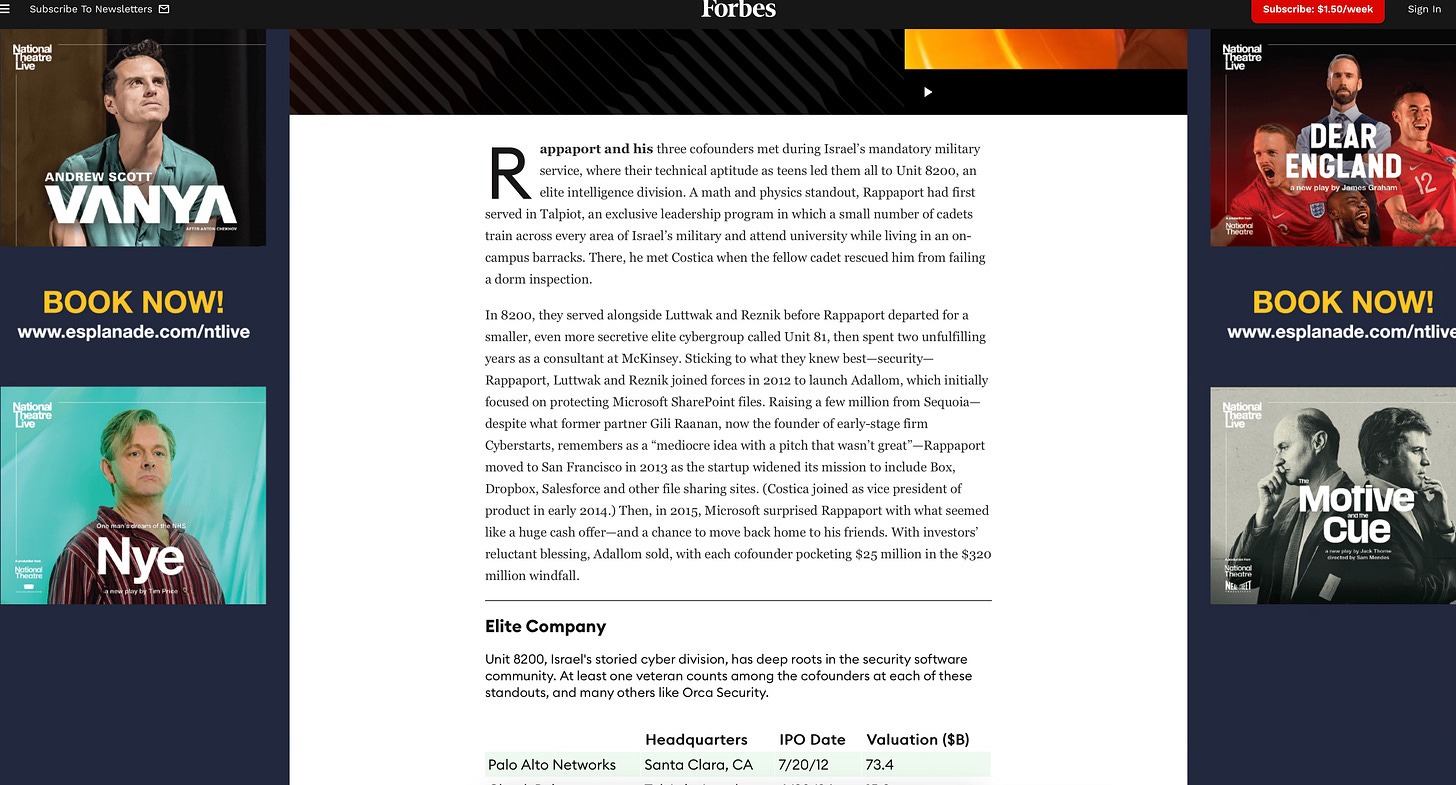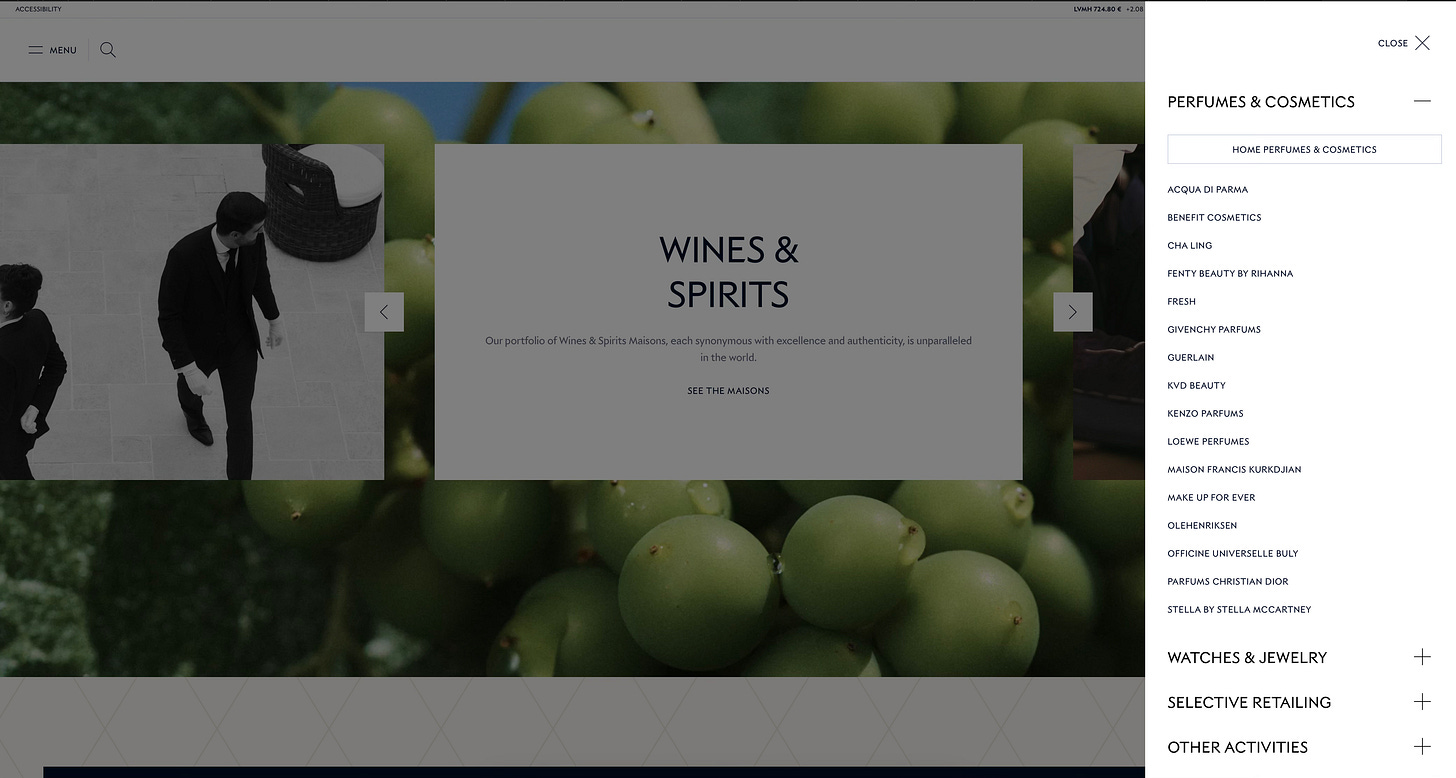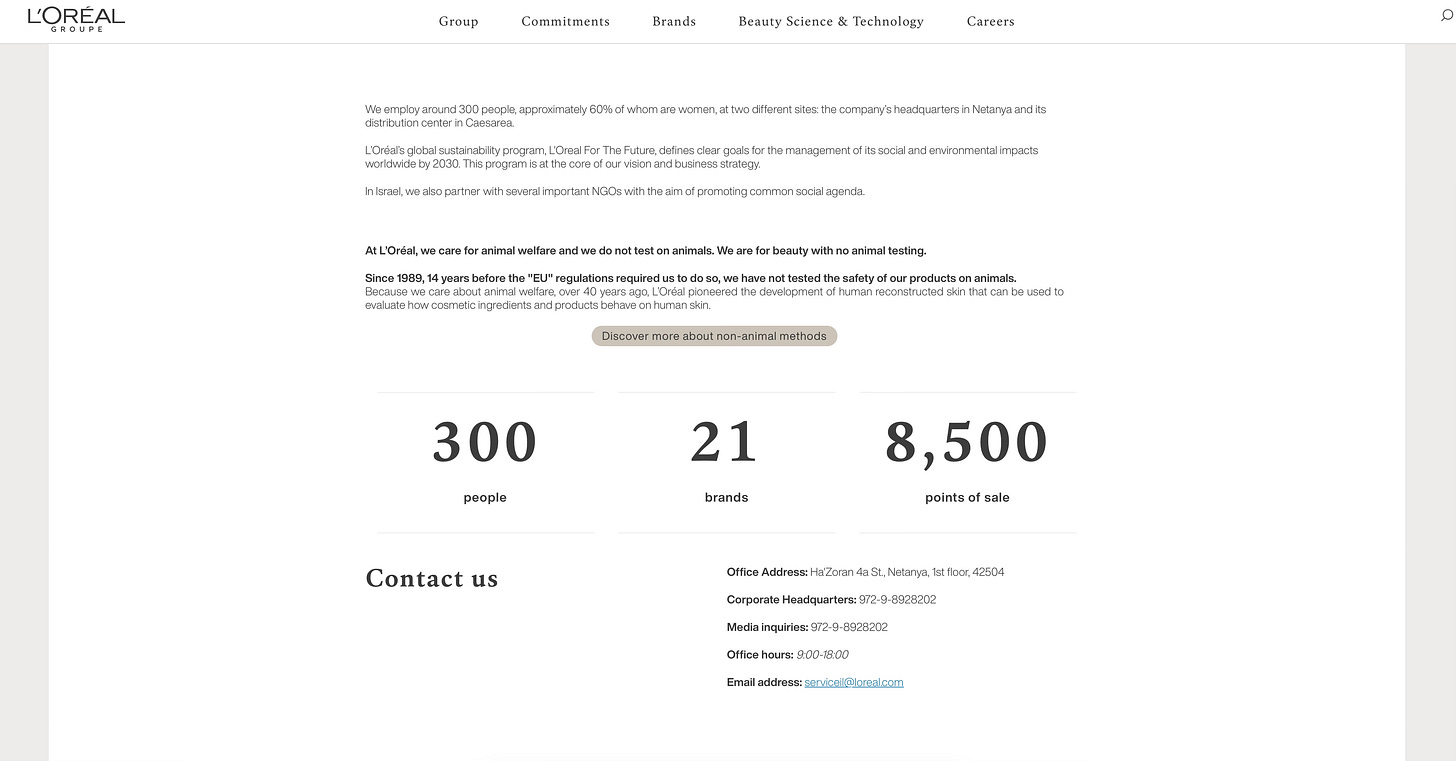#3: The GADIS GILA Guide To... shopping in a time of genocide: "Don't buy" list (international beauty edition)
Your bathroom and dressing table are about to get a massive overhaul. The blood of children on our makeup brushes? No thanks.
Research by Hidayah Salamat & Atia Shahana. Editing by Adibah Mustafa
This article is the second of the multi-part series #DecolonisingTheWorld, an exercise in helping us reclaim our sense of humanity—one hefty piece of research, reporting and writing at a time.
We get it. You grew up with some of these brands. These were your staples. You were so attached to them you’d queue hours for a flash sale and stock up as if an apocalypse was coming.
The classic Burberry London has been my signature perfume since I was in secondary school and when I heard they were phasing it out I bought bottles and bottles of them. Friends bought them when they came across them while travelling. My husband used to swipe off for me all the bottles he saw on the shelves at Mustafa Centre, which I think was among the last few institutions to still have them in stock.
Well, guess what? This is it. This is the apocalypse. The horrific events happening around the world—many of which have been happening for decades and even centuries—are now surfacing like a tornado on every information platform available. You’d have to be living (in a burrow) under a rock to have avoided witnessing it. And since you’re reading this, obviously you’re not in a burrow.
If you take a tour around your home right now you’d find that approximately 80 per cent of what you own is contributing to multiple genocides happening around the world. Directly.
Perhaps you’ve been invested in the Boycott, Divestment and Sanctions (BDS) movement since October and it’s gone down to 60 per cent. Brilliant.
There are so many free platforms helping you filter the “good” from the “bad”.
Among them: Al-Aqsa Mosque, BDNaash, @BDSbabe, BoycottIsrael.io, EthicalConsumer.org, Ethos by SSQRD and @L48.
But these are usually led by individuals who are doing this in their free time, above and beyond their day-to-day responsibilities, and their physical, mental and emotional capacities.
Which is why you often run into situations where not all platforms align in terms of the conglomerates and brands to boycott.
In our very first The GADIS GILA Guide To… series, we will list, in order of lifestyle category, the conglomerates (as well as the brands they own) and even independent brands that have the biggest shares of the monopoly.
We will also provide background (with evidence) on why you should be prioritising them in your personal BDS agenda.
This month, we’re focusing on international conglomerates and brands that monopolise the world of beauty.
THE DON’T BUY LIST
ANYTHING FROM THE ESTEE LAUDER COMPANIES (see brands listed below)
Why?
Well, click on this Wikipedia page describing owner Ronald Lauder’s business and passion projects over the years and well, it’ll make you want to scream while simultaneously tearing your hair out.
But if you don’t want to go down that hole, Lauder basically has deep links with various organisations funding the illegal Israeli settlement of Palestine, including, at some point leading ambitious efforts by the Jewish National Fund as its chairman of the board-emeritus.
In summary:
DO NOT BUY or advocate for any beauty products from these brands, owned fully or partially, by The Estée Lauder Companies (listed in alphabetical order):
Aramis, Aveda, Bobbi Brown, Bumble and bumble, Clinique, Dr Jart+, Estée Lauder, Frédéric Malle, GLAMGLOW, Jo Malone, Kilian Paris, La Mer, Le Labo, MAC Cosmetics, The Ordinary, Origins, Smashbox, Tom Ford Beauty and Too Faced
ANYTHING FROM THE L’OREAL GROUP (see brands listed below)
Why? The L’Oreal Group’s deep, decades-long ties with Israel is indisputable.
As of writing, it has its main headquarters in the city of Netanya, Israel. Real estate company Makler calls it the “pearl of tourist Israel”. And—surprise!—it’s a stone’s throw away from Elbit Systems, the primary provider of the Israeli military's land-based equipment and unmanned aerial vehicles.
Read this absolutely unbiased (note sarcasm) description of Netanya on Britannica if you’re feeling ragey. Otherwise, skip it.
A quick Google search shows that the fastest way to get here from the town of Migdal HaEmek is about an hour.
That’s where their plant, or factory, is located. In the last two decades, L’Oreal has been conducting tours of its plant.
According to The Viva Palestina MY Daily, Migdal HaEmek was originally the Palestinian village of Al-Mujaydil. The land was “cleansed” of its original inhabitants, then renamed Migdal HaEmek.
Here’s the full excerpt:
The town of Migdal HaEmek was built on the ruins of the Palestinian village of Al-Mujaydil (المْجيدل) which was depopulated of its Palestinian Arab residents by the invading Zionists in 1948. The village, which is located near Nazareth in the northern part of occupied Palestine, was rebuilt and renamed Migdal HaEmek and now has 24,000 Jewish settlers living in it. Prior to the ethnic cleansing and destruction of Al-Mujaydil, 18,165 out of 18,836 dounams of the land of al-Mujaydil were privately owned by Palestinian Arabs, and the remainder was largely public village lands. The villagers were expelled and have since been denied their right to return to their homes and lands. L'Oreal's plant is located on private illegally occupied land, and was erected without permission of its owners. Thus, the company is conducting business in violation of international law. It is trespassing on privately owned property. —The Viva Palestina MY Daily
So both L’Oreal’s headquarters and factory are located on stolen land. And to steal the land, you first need to remove its inhabitants and everything that comes along with them.
Following so far, yeah?
In the last five years alone, L’Oreal has continued to commit to the provision of all kinds of resources to Israel, including COVID-19 “protection hair kits” to Israeli hairdressers.
In 2021, it—very ironically—announced a partnership with (but of course) Israeli climate tech company BreezoMeter, which, according to L’Oreal’s press release, “is a leader in the space of environmental information about air quality pollen and fires”.
“Its main goal is to improve the health and safety of billions of people worldwide by providing accurate and actionable environmental data and insights,” the press release stated.
Meanwhile, less than a month since the incident of Oct 7, 2023, Israel had bombarded Gaza with the equivalent of two nuclear weapons over an area of 360 square km—far smaller than that of Hiroshima at 900 square km in 1945, according to a report by Scientists for Global Responsibility.
It has been nine months since the incident and not only has Israel NOT stopped its bombardments, it has increased them. Exponentially.
Additionally, just last year, thousands of black women reported that hair relaxers produced by brands owned by L’Oreal gave them cancer. Of course, the company denied liability, saying there was not enough research to prove there were links between their products and the women’s suffering.
[Reminder: As a human being, when someone tells you they suspect a product is what’s given them cancer, the natural instinct is to tell them to stop using that product. As an entrepreneur, when a large group of your loyal customers report that your products may be giving them a terminal condition, you withdraw these products. Immediately. And then, you look into the matter more deeply.]
If you need more evidence than that, I don’t know what to tell you except—stop reading or just unsubscribe from GADIS GILA. And I say that with love.
In summary,
DO NOT BUY or advocate for any beauty products from these brands, owned fully or partially, by the Loreal Group (listed in alphabetical order):
Aesop, Biotherm, The Body Shop, CeraVe, Essie, Garnier, Giorgio Armani Perfumes, Helena Rubinstein, Kérastase, Kiehl’s, Lancome, La Roche-Posay, Maison Margiela Fragrances, Maybelline New York, Mugler Beauty, NYX Professional Makeup, Prada Beauty, Ralph Lauren Fragrances, Redken, SkinCeuticals, Shu Uemura Art of Hair, Urban Decay, Valentino Beauty, Vichy, Viktor & Rolf Beauty and Yves Saint Laurent Beauté
ANYTHING FROM JOHNSON & JOHNSON (see brands listed below)
Why? Pharmaceutical, biotech and medical technologies—the US-based Johnson & Johnson company holds massive shares in these markets internationally and was estimated to have generated more than US$35 billion in net income last year.
This is of extreme significance—J&J essentially has a monopoly on global public health. And it has worked hard—and continues—to try and convince its investors and consumers that it is working for the good of the world.
“For every patient, for everyone.”
Yet, there is no evidence of it even attempting to provide medical support to Gaza. Instead, J&J has chosen to continue its operations in Israel, first established in 1997, and currently has four sub-companies in Israel contributing to the Zionists’ research and development, as well as commercial activities.
On its website, J&J states it “proudly” manages 1,000 employees in Israel, promising to position them so they can “truly impact the future of human health and medicine”.
Some conglomerates and brands are being boycotted mostly due to founder’s bias, like LVMH below, but J&J, whose products many of us have used as children, as adults and on our own children, has proven to be—as a powerful global institution—exceedingly hypocritical and manipulative.
In summary…
DO NOT BUY or advocate for any beauty and body care products from these brands, owned fully or partially, by Johnson & Johnson (listed in alphabetical order): Acuvue, Aveeno, Carefree sanitary pads, Clean & Clear, Johnson’s Baby, Le Petit Marseillais, Listerine, Lubriderm, Neutrogena, OGX, Rogaine and Stayfree sanitary pads (yes—the irony is not lost on me either).
ANYTHING FROM LVMH (see brands listed below):
Why? The chairman of the French luxury conglomerate LVMH (Moet Hennessy Louis Vuitton) is Bernard Jean Étienne Arnault—the third richest person in the world with an estimated net worth of US$194 billion as of July 2024, according to Forbes (paywalled).
Despite a couple of knee jerk attempts—their archive of press releases disappearing practically overnight, for example—there’s no hiding Arnault’s direct investment in the Zionist agenda.
Before we get into one or two sources of proof that Arnault is Zionist, one thing is clear: This man is like a cesspool of the deadly sins, with the most obvious ones being greed, gluttony and hubris. He wants the biggest stake in every single luxury market.
Just last month, Reuters cited a Bloomberg report saying that LVMH had bought a small stake in a rival luxury brand Richemont—not the first time that the market giant has claimed—or at least attempted to—stakes in its competitors. In fact, LVMH appears to have been on a “collect them all” mission for a long time.
In the same article, it was reported that LVMH had amassed a stake in Hermes in 2010. In response, the house of Hermes binded their holdings, and LVMH eventually relinquished its stake in 2014.
Pure evil.
Now for the proof.
In 2020, it was reported that LVMH was one of several participants in a US$90 million investment in lab-grown diamond maker Lusix, the Israeli manufacturer of a brand called Sun Grown Diamonds.
In 2021, Arnault’s venture investment arm Aglaé Ventures was part of a US$120 million funding for cybersecurity firm Wiz, the “Israeli maker of cloud security solutions for enterprises”. According to Forbes, Arnault was “so impressed by (Wiz founder Assaf Rappaport’s) ambition that he wrote him a personal check”.

“Fun” fact: Rappaport and his three co-founders met during Israel’s mandatory military service, Forbes reports, “where their technical aptitude as teens led them all to Unit 8200, an elite intelligence division”.
“A math and physics standout, Rappaport had first served in Talbot, an exclusive leadership programme in which a small number of cadets train across every area of Israel’s military and attend university while living in an on-campus barracks … Rappaport departed for a smaller, even more secretive elite cyber group called Unit 81” —Forbes
Help.
In summary…
DO NOT BUY or advocate for any beauty products from these brands, owned fully or partially, by LVMH (listed in alphabetical order):
Acqua di Parma, Benefit Cosmetics, BITE Beauty, Cha Ling, Christian Dior Parfums, Dior, Fenty Beauty by Rihanna, Fresh, Givenchy Parfums, Guerlain, Kenzo Parfums, KVD Beauty, Loewe Perfumes, Make Up For Ever, Maison Francis Kurkdjian, Marc Jacobs, Olehenriksen, Sephora and Stella by Stella McCartney.

ANYTHING FROM UNILEVER (see brands listed below).
There are probably way more reasons than this, but Unilever’s response to Ben & Jerry’s decision to no longer service ice-cream to Occupied Palestinian Territories should be enough for now:
The Israeli-Palestinian conflict is a very complex and sensitive situation. As a global company, Unilever’s brands are available in more than 190 countries and in all of them, our priority is to serve consumers with essential products that contribute to their health, wellbeing and enjoyment.
We remain fully committed to our presence in Israel, where we have invested in our people, brands and business for several decades.—Unilever
In summary,
Don’t buy or advocate for these beauty products partially or fully owned by Unilever:
Clear, Dermalogica, Dove, Lifebuoy, Paula’s Choice, Rexona, Simple Skincare, Sunsilk, TRESemme and Vaseline.
This is a developing article and will be updated regularly. If you have evidence of companies and brands directly complicit in genocide, hit that reply button and send us your recommendations with the header: “BeeDeeAss suggestion”. This helps us decide which requests to prioritise and/how to categorise them.
UPDATE: This issue was last updated on Jul 27 to include Johnson & Johnson and its affiliate brands.
Make sure you don’t miss future parts of the #DecolonisingTheWorld series—as well as other essays by founder Hidayah Salamat and other women born, raised or living in the Nusantara—by subscribing to the GADIS GILA newsletter.
If you found this guide helpful, feel free forward it to your friends and family!
Thank you for reading!








